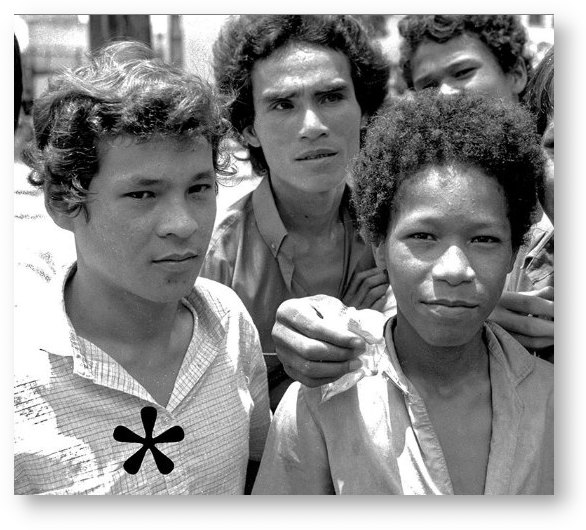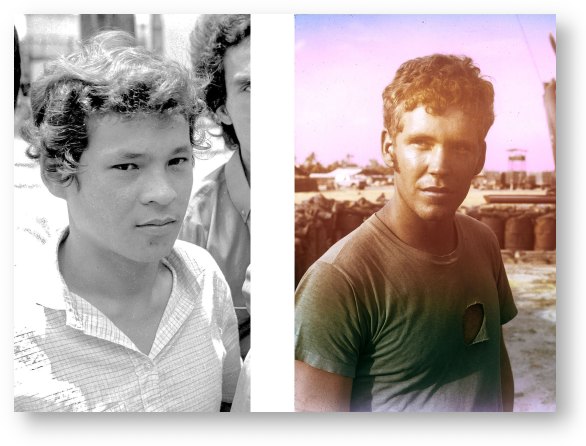On the heels of Don Wakamatsu becoming Major League Baseball’s first Asian American manager, two new Asian Americans are making news for being the latest political pioneers. First, Retired Army General Eric Shinseki has been nominated by Barack Obama to be his Secretary of Veteran Affairs:
Shinseki [is] the first Army four-star general of Japanese-American ancestry . . . [and] a former Army chief of staff once vilified by the Bush administration for questioning its Iraq war strategy. . . .
Shinseki’s tenure as Army chief of staff from 1999 to 2003 was marked by constant tensions with Defense Secretary Donald Rumsfeld, which boiled over in 2003 when Shinseki testified to Congress that it might take several hundred thousand U.S. troops to control Iraq after the invasion.
[T]he general was marginalized and later retired from the Army. But Shinseki’s words proved prophetic after President George W. Bush in early 2007 announced a “surge” of additional troops to Iraq after miscalculating the numbers needed to stem sectarian violence. . . .
Shinseki, 66, is slated to take the helm of the government’s second largest agency, which was roundly criticized during the Bush administration. . . . Veterans groups also cheered the decision.
Secondly, Republican attorney from Louisiana Anh “Joseph” Cao has just become the first Vietnamese American elected to Congress:
In the 2nd Congressional District, which includes most of New Orleans, Cao won 50 percent of the vote to Jefferson’s 47 percent and will become the first Vietnamese-American in Congress. His only previous political experience was an unsuccessful 2007 bid for a seat in the state legislature. . . .
Republicans made an aggressive push to take the 2nd District seat from the 61-year-old Jefferson, who has pleaded not guilty to charges of bribery, laundering money and misusing his congressional office. . . . Greg Rigamer, a New Orleans political consultant, said his analysis showed turnout in predominantly white sections of the district was double that in black areas. He said that helped push Cao to victory.
Once General Shinseki is confirmed by the Senate, he follows in the trailblazing steps of Norman Mineta (Secretary of Transportation first under Clinton, then G.W. Bush) and Elaine Chao (Secretary of Commerce under G.W. Bush) as one of the first Asian American presidential cabinet members.
Shinseki’s nomination could not have gone to be more courageous and deserving person. He showed tremendous bravery and integrity in standing up to the Bush administration and then-Secretary of Defense Rumsfeld by putting facts before politics.
Even though many liberals like me and other Americans from all backgrounds opposed (and continue to do so) the U.S.’s entry into Iraq, as many analysts point out, it was the U.S.’s underestimation of what it would take to secure the country after overthrowing Saddam Hussein’s government that is responsible for the mess we face today.
General Shinseki’s career has been one of blazing a new trail for Asian Americans and while the task ahead of him is daunting, I have every confidence that he will effectively tap into his decades of determination and experience to do a great job in serving our veterans, who put their lives on the line to protect all Americans’ right to disagree with each other within our democratic system.
Regarding Anh “Joseph” Cao, I have to admit that I had never heard of him until news of his recent victory, nor did I know of his candidacy for Congress. Further, as a liberal, I do not anticipate that I will support many of his political positions and policies.
Nonetheless, as an Asian American and particularly as a Vietnamese American, I am thrilled that he has just become the first Vietnamese American member of Congress. As I wrote previously, Vietnamese Americans have a well-documented history of crossing political party lines to vote for Vietnamese American candidates, although we should note that in contrast to most Asian Americans who identify as liberal or Democrats, Vietnamese Americans are the Asian group most likely to identify as Republican/conservative.
Cao joins fellow Republican Bobby Jindal (an Indian American elected as Governor in 2007, and was mentioned as a possible Vice Presidential pick for John McCain) as emerging Asian American politicians in Louisiana. (By the way, for whatever reasons, Louisiana seems to be emerging as an incubator for young Asian American politicians these days).
What is notable about Cao’s victory is that, as the quote from the AP article above notes, his victory is the result of enormous support not necessarily of Asian Americans, but from Whites in his district. In other words, despite the fact that there is a large Vietnamese American community in New Orleans, Cao’s victory resulted from the overwhelming support of Whites.
The point is, Cao’s victory represents the “mainstreaming” of Asian American politicians and how they are able to both leverage the collective resources of their ethnic community and at the same time, broaden their appeal to Whites and other non-Asian voters in order to propel them to victory.
Does this sound familiar? It should because it’s basically the strategy that helped Barack Obama become our next President. I know that Obama’s appeal and victory are more complex than that, but the point I’m trying to make is that “minority” candidates understand that their “dual identities” as both a person of color and as an mainstream American can be both an advantage and a challenge.
That is, just like Barack Obama experienced, his non-White identity led to charges that he wasn’t really “American” by some extremist critics, but that same identity helped him appeal to the growing racially diverse population here in the U.S. At the same time, he showed the country that in terms of his ideals and dreams for the country, he was just as “American” as anybody else — White or non-White.
As such, Obama’s example is likely to be used a model for many minority politicians for years to come. Eric Shinseki and Anh “Joseph” Cao are the most recent examples of this idea and I wish them both the best success in their new positions and thank them for being role models for all Asian Americans.



